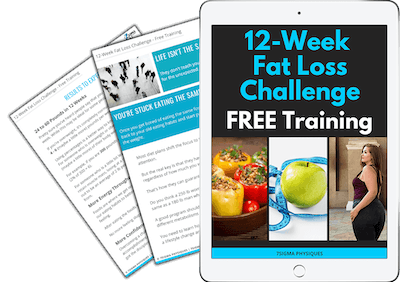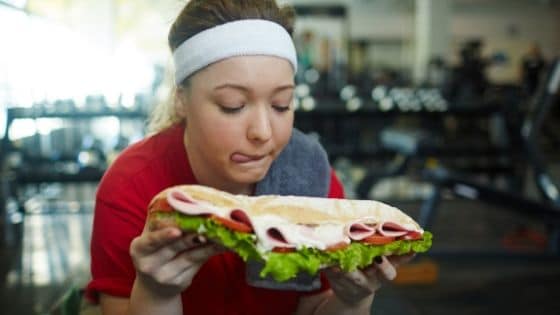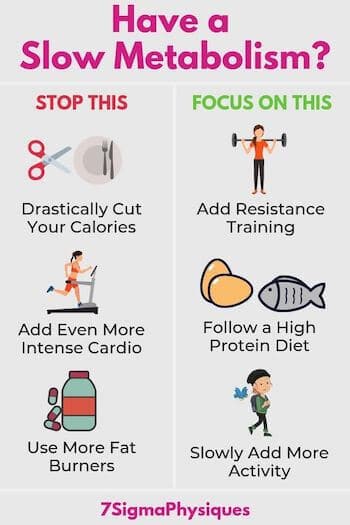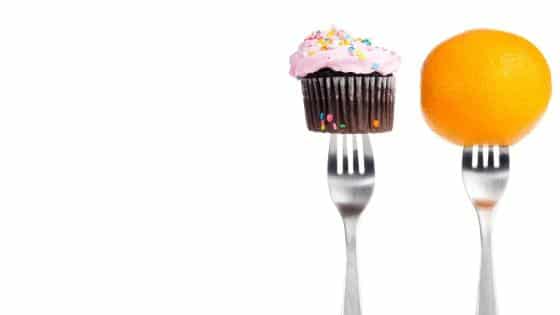The toughest part of a diet isn’t watching what you eat. It’s watching what other people eat.
All jokes aside, losing weight is difficult, and anyone who tells you otherwise is wrong.
Many trainers and supplement companies try to make weight loss look easy; here are a few claims you’ve probably heard:
- Just cut carbs and you’ll lose weight
- Just cut fats and you’ll lose weight
- Take this supplement to melt those extra pounds in a week
- Drink this detox tea
- Skip breakfast
- Don’t skip breakfast
Losing weight is not as easy as they claim it to be, here’s the painful truth about losing weight.
1. You Need to Break Your Bad Habits
Most people believe that once they decide to lose weight, their old eating habits will just disappear.
Unfortunately, that isn’t the case.
Habits are tough to break, but not impossible, it takes hard work, self-awareness, and patience to change them.
So don’t be discouraged if you ate healthy for a week and then ate bad again for a couple of days.
If you’d like explore more, here are a few other horrible habits preventing you from losing weight.
The “It Takes 21 Days to Build a Habit” Misconception
A study (1) published in the European Journal of Social Psychology showed that it takes more than 2 months before a new behavior becomes automatic.
It also showed that this can vary drastically depending on the person and behavior being built.
According to researchers, it can take anywhere from 18 to 254 days to build a new habit.
In reality, it will most likely take you anywhere from 2 to 8 months to build a new habit, not just 21 days.
So in order to avoid disappointment and discouragement, you must set your expectations right and plan accordingly.
Here’s a list of 7 small habits that can help you lose weight.
Start your journey to losing 24-60 pounds in just 12 weeks.
Get the free 12-Week Fat Loss Challenge Training Guide!

2. Not Every Week Will Be Perfect
Another common misconception is that losing weight will always go as planned.
So not true.
Just because you wrote down your schedule and organized yourself doesn’t mean things will go as planned.
We all have other things going on in our lives, from work to family, to hobbies, friends, and unexpected emergencies.
Many people get discouraged when they’ve been so good with their diet and exercise and are suddenly forced to skip a workout or eat something outside their plan.
Truth is, one missed workout or one bad meal won’t ruin your progress. When this happens, don’t punish yourself, just get back to your normal routine.
If you’re having trouble finding time to get your sweat on, here’s an article with 14 tips to lose weight without exercise.
3. You Can’t Out-exercise a Bad Diet

“I’m exercising a lot but not losing any weight” is another common phrase.
While exercising can surely help you burn some calories, it won’t be of much help for weight loss if your diet isn’t in check.
The key to weight loss is being in a calorie deficit, and the easiest way to reach that deficit is through a well-balanced diet.
You can check out the 80/20 rule for weight loss, if you’d like to explore more.
To put things into perspective, a 30-minute jog can help you burn between 180 – 266 calories depending on how much you weigh (the heavier you are, the more calories you burn).
One serving of Oreos (3 cookies) has about 160 calories!
That’s why some people can manage to lose fat without doing cardio.
4. Hormonal Changes Will Make You Hungry
During weight loss, your leptin levels – a hormone that tells your brain that you’re full – decrease.
On the other hand, your ghrelin levels – a hormone that tells your brain that you’re hungry – increase.
These hormonal changes stay long after you’ve reached your desired weight, which makes keeping the weight off a little difficult.
It’ll take some time for your hormone levels to be balanced again, so be patient after reaching your goal weight.
This is one of the many reasons why maintaining weight is harder than losing it.
Here’s an article about reasons you keep regaining weight and what to do about it.
5. Your Metabolism Slows And Weight Plateaus
Hitting a weight loss plateau is a normal biological response. In fact, if you didn’t plateau, it would mean that there’s something wrong with your body.
However, many people panic and think there’s something wrong with them when weight loss stalls.
During weight loss, your metabolism slows as a method of survival. Your body loves being in a state of equilibrium, a comfortable place suitable for reproduction.
When you eat less, your body doesn’t know that you’re losing weight to be healthier.
It just sees that you’re eating less than normal so it starts saving energy by burning fewer calories and becoming more efficient at extracting calories from foods
I go more in-depth about this in my article on metabolic adaptations to weight loss.
Here are a few other reasons your weight stalls:
- Thermic Effect of Food
The processes of digesting and absorbing foods burns calories. Eating less food means fewer calories being burned, this is called the thermic effect of food.
- You Weigh Less
The less you weigh, the fewer calories you burn (it takes less energy to move a 200 lb person than it does a 150 lb one).
What NOT to Do

Don’t cut calories drastically, this will make you lose fat fast, but cause your metabolism to go down quickly and make you lose more muscle mass, which is essential for keeping a fast metabolism.
These are a few reasons why FAD diets fail, they make you eat so little to fulfill their promise of “lose 20 pounds in 20 days” (mostly water and glycogen), but leave your metabolism in a bad spot, making you gain all the weight back.
What Should You Do?
When you reach a weight loss plateau, make a small decrease in your calories, a slight increase in activity, add a refeed day (commonly known as cheat day), or do all three.
A refeed will help you offset the decrease in leptin and thyroid.
These small changes should help you quick-start weight loss again until the next time you plateau.
Here’s a more in-depth article on how to boost your metabolism.
6. Weight Loss Supplements Don’t Work
It’s very tempting to take the easy way out, we live in an era of instant gratification, and supplement companies know this.
Sadly, there’s no evidence that weight loss supplements work.
In fact, this study (2) showed liquid diets, fad diets, and over-the-counter pills were not linked to weight loss.
You’re better off trying some natural weight loss remedies like drinking ginger tea or eating foods that serve as appetite suppressants.
7. There are No Quick Fixes
I understand that it’s difficult to be patient, but as previously mentioned, starvation diets will wreak havoc on your metabolism making weight loss more difficult in the long-term.
If your goal is to lose weight, keep it off and actually create a healthier lifestyle, then you need to work on your behavior and eating habits.
It’s not about being “on” and “off” a diet, but about being always “on” a healthy lifestyle.
If you’re ready to start your weight loss journey, the 12-Week Fat Loss Challenge is the place to start!

This plan helps men and women lose fat without starving themselves or giving up their favorite foods.



